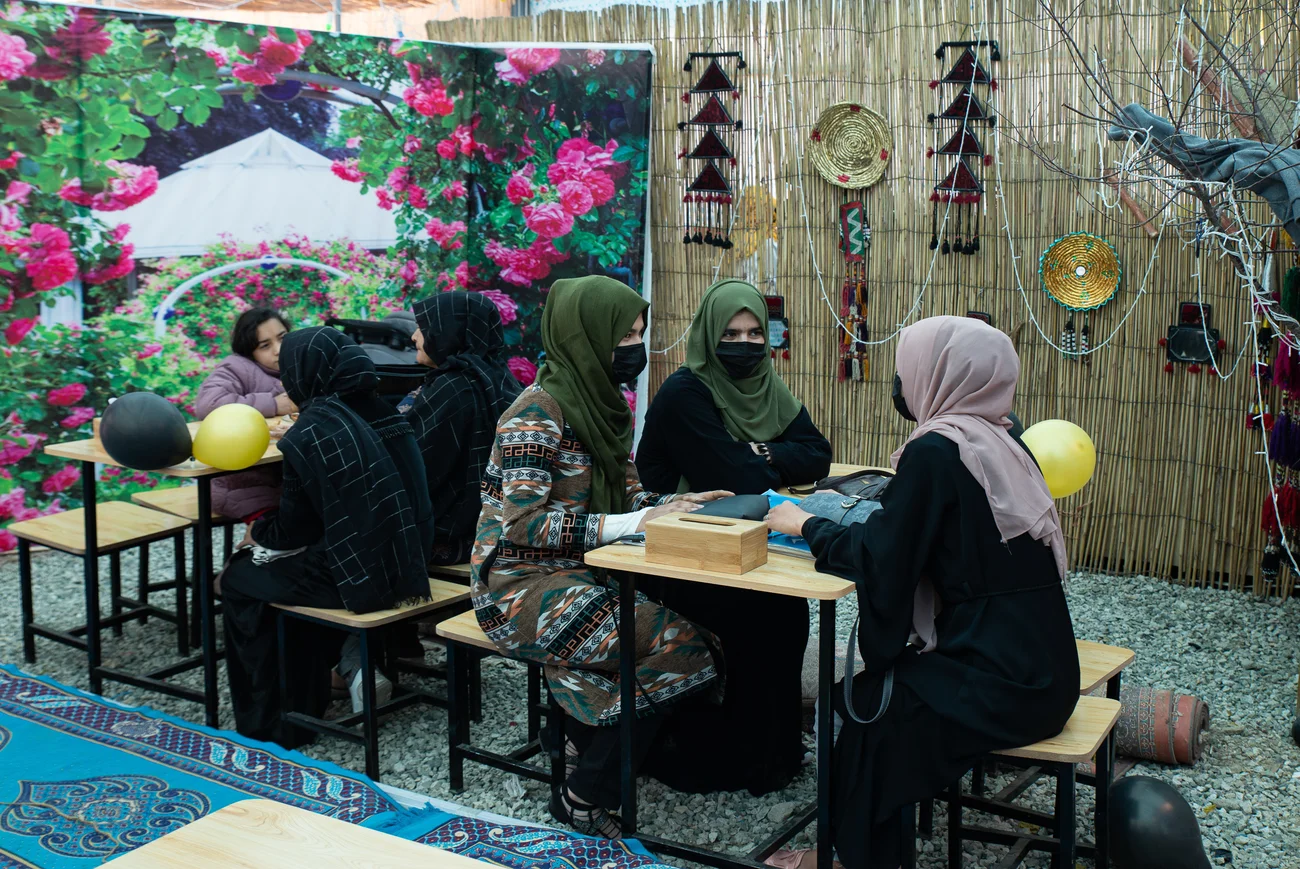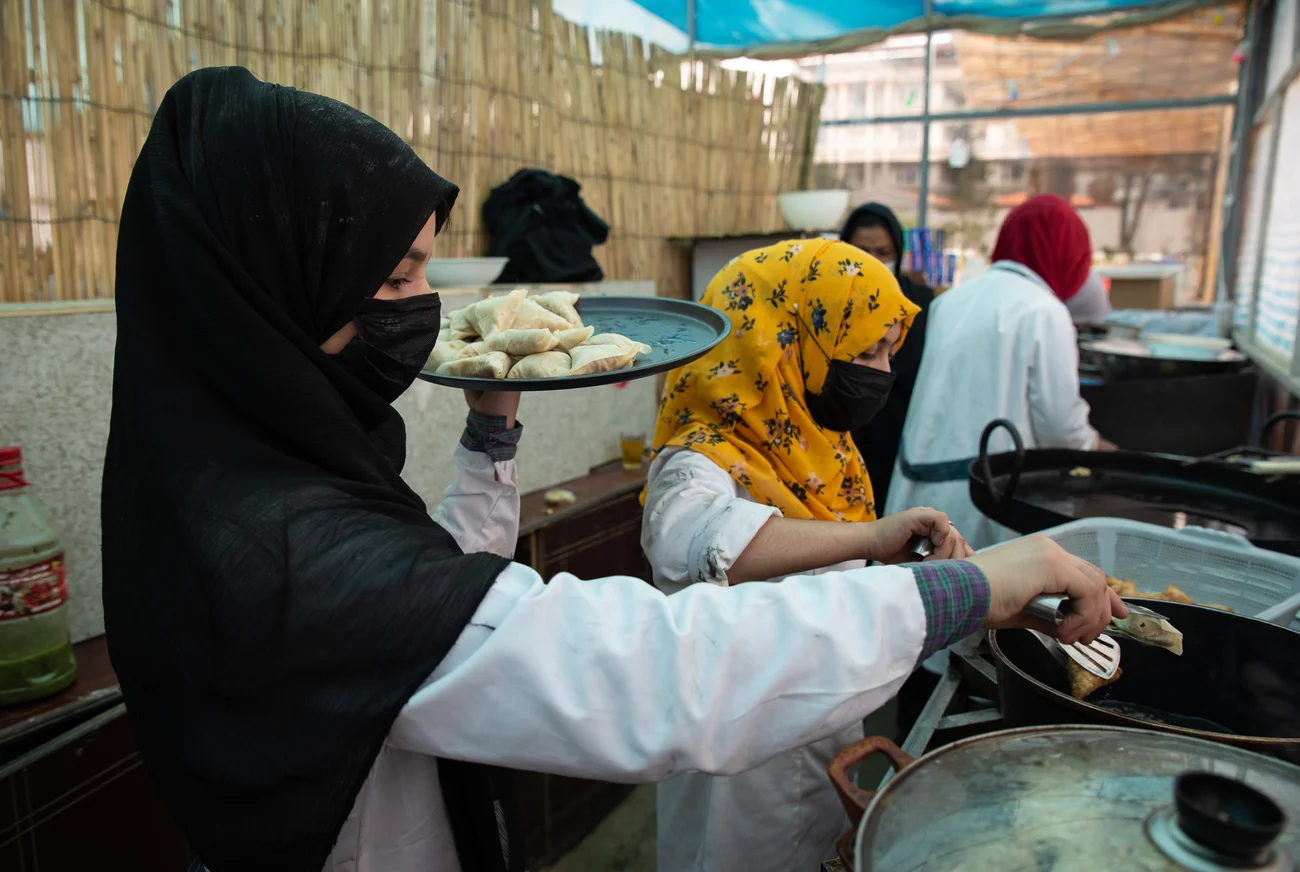by MAIJA LIUHTO


By the side of a busy road in Northwestern Kabul, the savory smell of bolani, traditional vegetable-stuffed flatbread, wafts out of a cloth-walled, temporary building.
Inside, a woman in a hijab and a white apron is starting to clean up the balloons, ribbons and empty plates strewn across tables. She is a server at this rarest of Afghan businesses: a dine-in restaurant for women, called Banowan-e-Afghan (Dari for “Afghan ladies”). The restaurant is run by women, for women: While men can order takeout, only female customers are allowed inside.
This pop-up restaurant opened in March and within a few days was already drawing customers. On this day, a group of young women in headscarves and long robes had come to celebrate a birthday party — a rare festive gathering of females in Taliban-controlled Afghanistan.
It has been a busy couple of days for the woman behind this enterprise.
“Last night, customers were coming but I’d already sent everyone home. I had no choice but to start working on my own,” says Samira Muhammadi, 31, a mother of three.
The women employed here come from underprivileged backgrounds. Many are widows and often the sole breadwinner in their family.
“I thought these vulnerable women should have a source of income,” Muhammadi says. “One of the women has six children, and her husband passed away. There is no other way for her to bring food on the table.”
In Taliban-controlled Afghanistan, opportunities for women to control their own fates are becoming rarer. The administration has curtailed girls’ and women’s right to education, banning them from secondary schools and universities (temporarily, the Taliban claims). The Taliban in December also barred women from working for NGOs and, more recently, for the United Nations, sparking concerns about the future of aid in the country.
Two-thirds of the country’s population are in need of “urgent humanitarian assistance,” according to the U.N.
NPR for more
(Thanks to reader)
